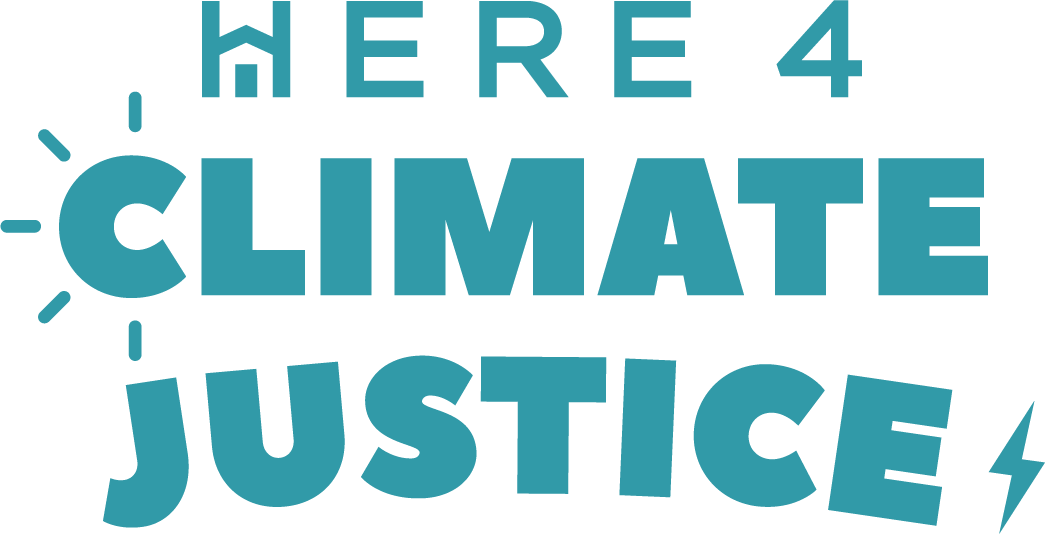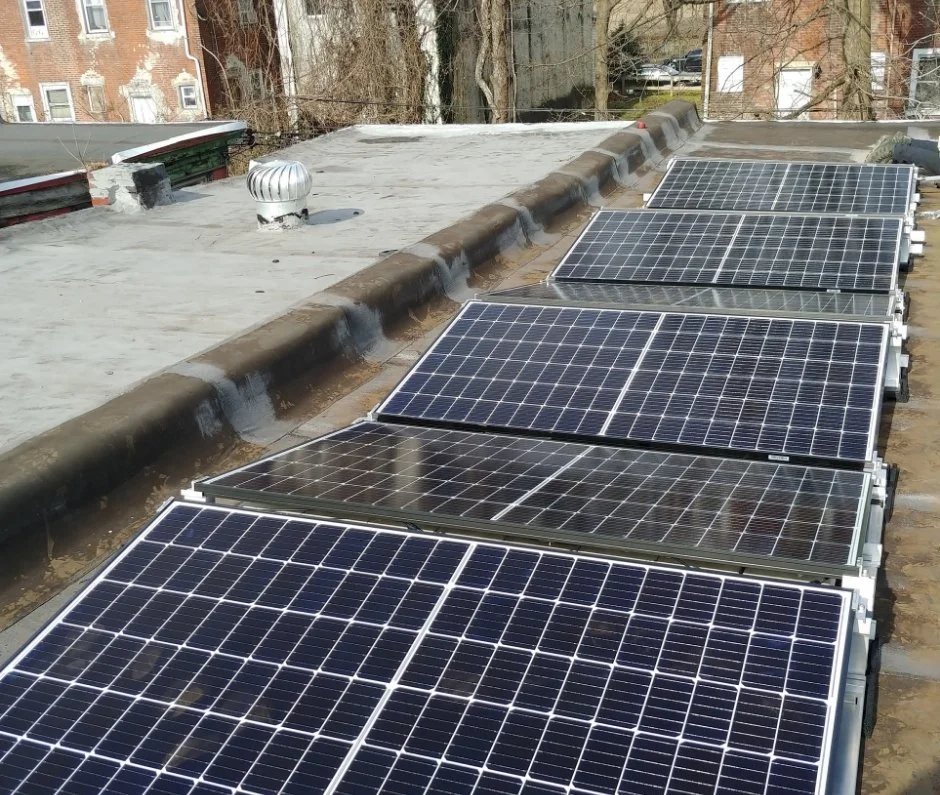
Resources
Jump To:
Housing
Everyone should have access to housing that they can afford that promotes their health and their well-being.
What is housing justice?
Achieving housing justice requires “ensuring everyone has affordable housing that promotes health, well-being, and upward mobility by confronting historical and ongoing harms and disparities caused by structural racism and other systems of oppression.” - Urban Institute
What are some of the obstacles that Philadelphians face when it comes to acquiring safe, affordable, sustainable housing?
With some of the nation’s oldest housing stock, too many Philadelphia homes have fallen into deep disrepair, contributing to poor public health (asthma, lead and asbestos exposure, and other respiratory issues) and high energy use that’s expensive and derived mostly from the burning of fossil-fuels. This means less money for residents at the end of the month and a hotter planet for all. There are tens of thousands of residential buildings in Philadelphia in need of urgent repairs whose owners cannot afford to fix them. If the city committed to supporting low-income residents to stay in and improve their homes, the sheer scale of the effort required to repair and electrify those homes would also present an unprecedented opportunity to develop a local workforce to meet this need through living-wage, high-quality jobs.
Resources
• Built to Last - Philadelphia Energy Authority (philaenergy.org)
• Housing Justice Hub | Urban Institute
• City Expands Right to Counsel for Eligible Philadelphia Tenants into Two Additional Zip Codes - Community Legal Services (clsphila.org)
Utilities
All Philadelphians deserve utilities that are accessible and affordable. Utility operators must do their part to reduce reliance on fossil-fuels and invest in affordable sources of renewable energy.
What is energy?
Energy is the ability to be active and do work. We use energy to make things happen. Our body uses energy that it gets from our food to be active. We also use energy to power our homes, schools, transportation, and businesses.
What is energy efficiency?
Energy efficiency means using less energy to do the same task. Oftentimes when we use energy much of it is wasted because the energy being used is not spent on the intended tasks. Energy-efficient homes and buildings use less energy to heat, cool, and run appliances and electronics, and energy-efficient manufacturing facilities use less energy to produce goods.
What is renewable energy?
100% clean, renewable energy can be derived from the sun, wind, and other naturally replenishing sources. A 100% clean, renewable energy commitment is the first step a city can take on the path to a renewable energy transition. To really do it right, it is imperative that the communities most affected by environmental injustices are at the center of planning a roadmap for reaching a 100% goal. Involvement of the communities most impacted by fossil fuel pollution is critical to equitably reaching this vision.
Resources
• Just Transition - Climate Justice Alliance
• Built to Last - Philadelphia Energy Authority (philaenergy.org)
Jobs
Family and community-sustaining jobs are needed now and in the future to help maintain our homes and support our communities.
What are Family and Community Supporting Jobs?
These are jobs that are safe, pay a thriving wage, and are able to meet the needs of workers, their families, and communities. The repair, weatherization and electrification of buildings must be pursued in a manner that is affordable and accessible; that preserves and creates living-wage jobs; and that, as much as is possible, retains the knowledge and experience of the existing union workforce.
Why is this an Important HERE 4 Climate Justice Initiative?
In order to bring the over 600,000 rowhomes in Philly into a good state of repair, a massive workforce is needed. This workforce should also be protected and able to thrive. Healthy working conditions with living wages, health benefits, sick leave, and paid vacation should be a guaranteed right for every worker in Philadelphia. This includes workers who do the taxing labor needed to repair our homes, increase their energy efficiency, convert them to renewable energy sources, and improve their resilience to extreme weather.
Resources
Water & Stormwater
All people should have access to clean, affordable drinking water and the infrastructure necessary to keep them safe from severe storms and flooding.
Here in Philadelphia, it is anticipated that the city will continue to get both wetter and hotter in the decades ahead and it is essential that people’s homes are able to withstand those changing conditions.
Why is it getting wetter here in Philadelphia?
The rate of sea level rise is increasing, amplifying flooding and leading to increased salinity of the surrounding waters. Extreme events such as heat waves, intense rain and/or snowstorms, and tropical storms and hurricanes are expected to continue to become more frequent and more severe. In the future, even in those periods when yearly rainfall levels remain relatively stable, that rain is likely to fall in fewer, heavier storms rather than across many smaller ones. Since warm air holds more moisture than cold air, we can expect to see longer periods between rains (because the moisture is being held in the atmosphere); then when that water finally falls, it’s far more likely to be torrential.
How does that impact our drinking water supply?
These heavy precipitation events, in the form of torrential rainfall, will frequently exceed the capacity of the city’s sewer infrastructure (as much of Philadelphia utilizes a combined sewer/storm water system), sending untreated sewage into the waterways and streets, degrading both water quality and public health. It places a large burden on the resources of the Philadelphia Water Department (PWD)– which brings water to our homes, cleans our wastewater, and manages stormwater – to continue to do their job safely and well.
Resources
• Philadelphia Water Bill Customer Assistance
Climate Change & Resilience
Climate resilience is about successfully coping with and managing the impacts of climate change while preventing those impacts from growing worse.
A climate resilient city is a low-carbon city where all residents have the resources they need to deal with the realities of a warmer world.
What is climate change?
Climate change refers to long-term changes in the Earth’s average temperature and weather patterns. It is primarily driven by the increased concentration of greenhouse gasses, such as carbon dioxide, in the atmosphere which have increased significantly due to human activities like burning fossil fuels and deforestation. Like a blanket, these gasses trap heat from the sun, causing global temperatures to rise significantly over time. In fact, 2018 was by far the warmest year on record in the U.S (more than 3 degrees above the 20th century average) and the eight warmest years on record have all occurred since 2014.
How is Climate Change Affecting Philadelphia?
Philadelphia is expected to become hotter and wetter in the coming years with some estimates predicting our weather will resemble that of New Orleans by 2050. By working today to electrify, repair, and weatherize our homes and neighborhoods, we can help ensure that Philadelphia’s communities are prepared for a future of climate extremes.
Resources








